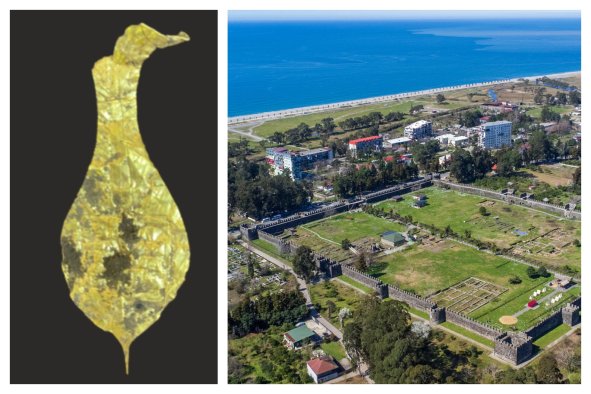Researchers have uncovered the remains of an ancient Roman forum at an archaeological site in Spain.
The forum was revealed during excavations conducted at the ruins of Ocuri, a Roman city located near the modern town of Ubrique in the south of the country, by a team from the University of Granada (UG), a press release said.
Ocuri was built in a strategic location on the slopes of the Cerro de la Mora, a limestone hill, and provided excellent views of the surrounding areas. While recent research has placed its origins at least as far back as the sixth century B.C., the vast majority of the remains correspond to the later Roman era. During this period, it became an important regional hub, reaching its zenith around the second century.
The archaeological site was originally discovered toward the end of the 18th century by a local scholar named Juan Vegazo, who hypothesized at the time that the central terrace of the Cerro de la Mora corresponded to the forum of the ancient city. The latest excavations at Ocuri have now confirmed this hypothesis, according to UG.
The forum is the "heart" of a Roman city, Macarena Bustamante Álvarez, who is with UG's Department of Prehistory and Archaeology, told Newsweek.
Essentially, the forum was a multipurpose public square or open area usually found in a central location. It served as a hub for commercial, political, religious and social activities. It typically included a variety of buildings and structures that served multiple public purposes. These architectural elements reflected its diverse functions.
When the UG expedition arrived at Ocuri, all that could be seen was the possible enclosure wall of the central square. But the team's archaeological investigations have enabled it to reveal a series of architectural elements that are indicative of large and clearly public buildings of the Roman Empire.
Among the finds, the researchers have identified the presence of a monumental altar accompanied by decorative architectural remains. These include the bases and shafts of columns.
The forum area also contains the remains of other buildings such as houses, thermal baths and even some funerary monuments, Álvarez said.
One of the other major contributions of the excavation project was the confirmation that Ocuri was continuously inhabited until the end of the fourth century. This finding was based on coins found in one area, which bore early Christian iconography. Previously, the occupation at the site was thought to have lasted only until the late third century.
The recent finds from the site help shed new light on the Roman presence in the Iberian Peninsula, according to Álvarez.
Do you have a tip on a science story that Newsweek should be covering? Do you have a question about archaeology? Let us know via science@newsweek.com.
Disclaimer: The copyright of this article belongs to the original author. Reposting this article is solely for the purpose of information dissemination and does not constitute any investment advice. If there is any infringement, please contact us immediately. We will make corrections or deletions as necessary. Thank you.



